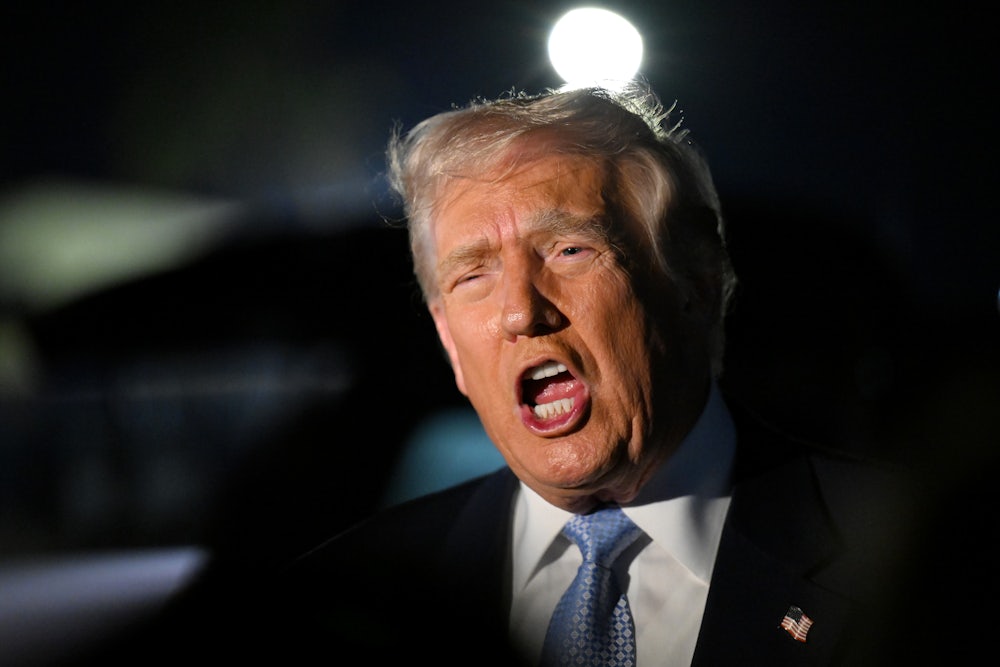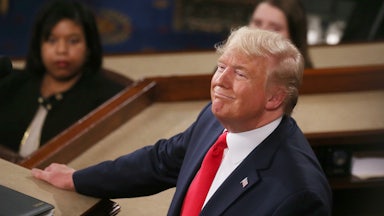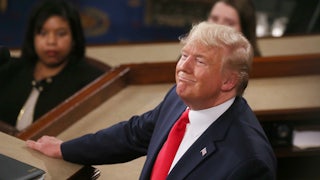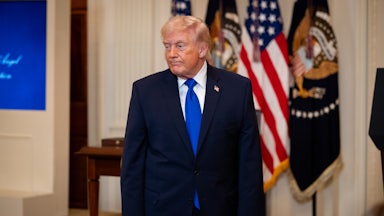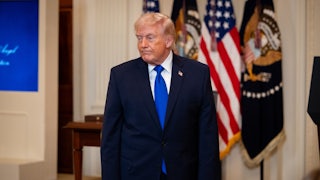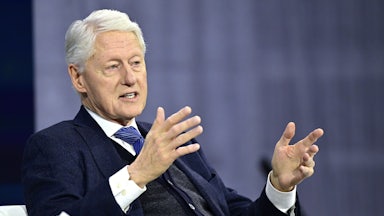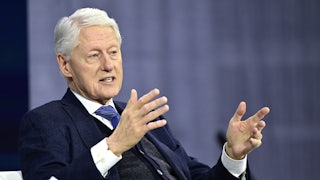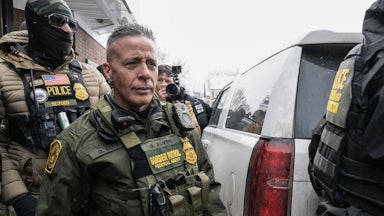The stock market is experiencing its worst November since the financial crisis of 2008. It spiked briefly Thursday morning because of a favorable third-quarter earnings report from the AI chipmaker Nvidia and a bizarrely robust jobs report for September. But in the afternoon it resumed its downward turn. There’s every reason to believe stock prices will continue to fall because—Nvidia or no Nvidia—we have an AI bubble that’s practically visible from outer space, and it’s bursting.
Meanwhile, Donald Trump’s approval rating, which has mostly been nosing down since his second inauguration, fell sharply during the past month to 38 percent, according to Reuters. That’s mirrored in a fresh Marquette poll that has the president upside-down on the issue of inflation by a score of 28 to 72 percent. Even Fox News puts his approval rating in the toilet.
Do these two November metrics—a falling stock market and a falling approval rating for Trump—measure a single phenomenon? It’s complicated.
I’m on record predicting a stock market crash and possibly a second Great Depression. I would love to be wrong, but at the least we’re headed into a bear market and probable recession. Yes, Nvidia is a $5 trillion company representing nearly 20 percent of the U.S. economy. But its stateside employees represent less than 0.01 percent of the U.S. workforce.
Trump, meanwhile, will likely continue to lose popularity over the Jeffrey Epstein scandal; over his stubborn refusal to extend Obamacare subsidies; over a likely Supreme Court defeat on tariffs, which will cost the Treasury about $300 billion; and maybe over new revelations about what Mohammed bin Salman told Trump about the bone-sawing of Jamal Khashoggi. Even Marjorie Taylor Greene doesn’t love Trump anymore.
“Is Trump Starting to Correct His Course?” Karl Rove asked hopefully in a November 19 op-ed for The Wall Street Journal. Rove’s evidence was Trump backing down to allow release of the Epstein files and Trump removing tariffs from coffee and bananas (two commodities for which there’s virtually no domestic industry because the United States lacks the right climate). That’s two examples, both dictated by political necessity. Meanwhile our billionaire president mocks the word affordability and shushes a female Bloomberg reporter with the words, “Quiet, piggy.”
Is the stock market decline in lockstep with Trump’s polling downturn? On the one hand, yes: Obviously, as Americans grow pessimistic about the economy the president will become less popular. According to Fox News, voters now rate Trump slightly worse on the economy than they did President Joe Biden at the end of his term.
On the other hand, Trump started dropping in the polls in January, whereas the S&P 500, excepting a two-month drop in February and March, climbed through October, even as Trump’s tariff spree put the global economy in peril. To the extent there are underlying problems in the financial sector, many of these—a tottering private equity market, for instance, and the AI bubble—were evident well before Inauguration Day.
It would be difficult to dispute that the economy has stumbled on Trump’s watch. Inflation started rising immediately after Trump announced his “Liberation Day” tariffs. Job creation cratered starting in June and July. It rebounded in September, but we have no clue what happened in October and the Bureau of Labor Statistics says it can’t tell us because of the government shutdown. Future scholars may regard the October 2025 jobs report as elusive as “A Corona for Vivien,” the missing sonnet cycle at the heart of Ian McEwan’s new novel, What We Can Know.
Consumer spending has stayed high, but only because the top 10 percent in the income distribution was buying stuff; it now accounts, grotesquely, for about half of all spending. At some point, the coming bear market will shut that down. The metaphor of choice for the economy right now is a Jenga tower. Have you ever played Jenga? You take turns pulling rectangular blocks out from a tower made of them and piling the blocks on top until the whole thing crashes down. As the U.S. economy rests on fewer and fewer pillars—a handful of affluent consumers, a handful of tech companies like Nvidia—it wobbles more and more.
The leading edge of financial decline has been crypto. Bitcoin’s gains for the past year have been wiped out. Paul Krugman suggests that crypto is a “Trump trade.” With little utility as a currency except for criminals, crypto, Krugman argues, is a speculative investment dependent on Trump’s promotion of the industry. “An industry that’s still having very little success in finding legal use cases for its products basically bought itself a president,” Krugman wrote Wednesday. “But with Trump’s power evaporating, it’s starting to look like money down the drain.” We may see something similar soon in the construction of data centers, which is associated with parallel corruption in Commerce Secretary Howard Lutnick’s family.
Krugman also notes that the partisan tenor of voter perceptions about the economy appears to be diminishing. “It may be that Trump is—bear with me here—actually paying a price for telling Americans not to believe their own eyes,” Krugman wrote Thursday. “Biden and company told Americans that their incomes were outpacing inflation, which was true but not what people wanted to hear. Trump keeps insisting that grocery prices are way down, which is simply a lie. And people may be noticing.”
Until now, the decline in the stock market has not been in lockstep with the decline in Trump’s popularity. But looking forward, they will very likely follow the same downward path. The good news is that we’re starting to witness Trump’s overdue political devaluation. The bad news is it will take a bite out of your 401(k).
